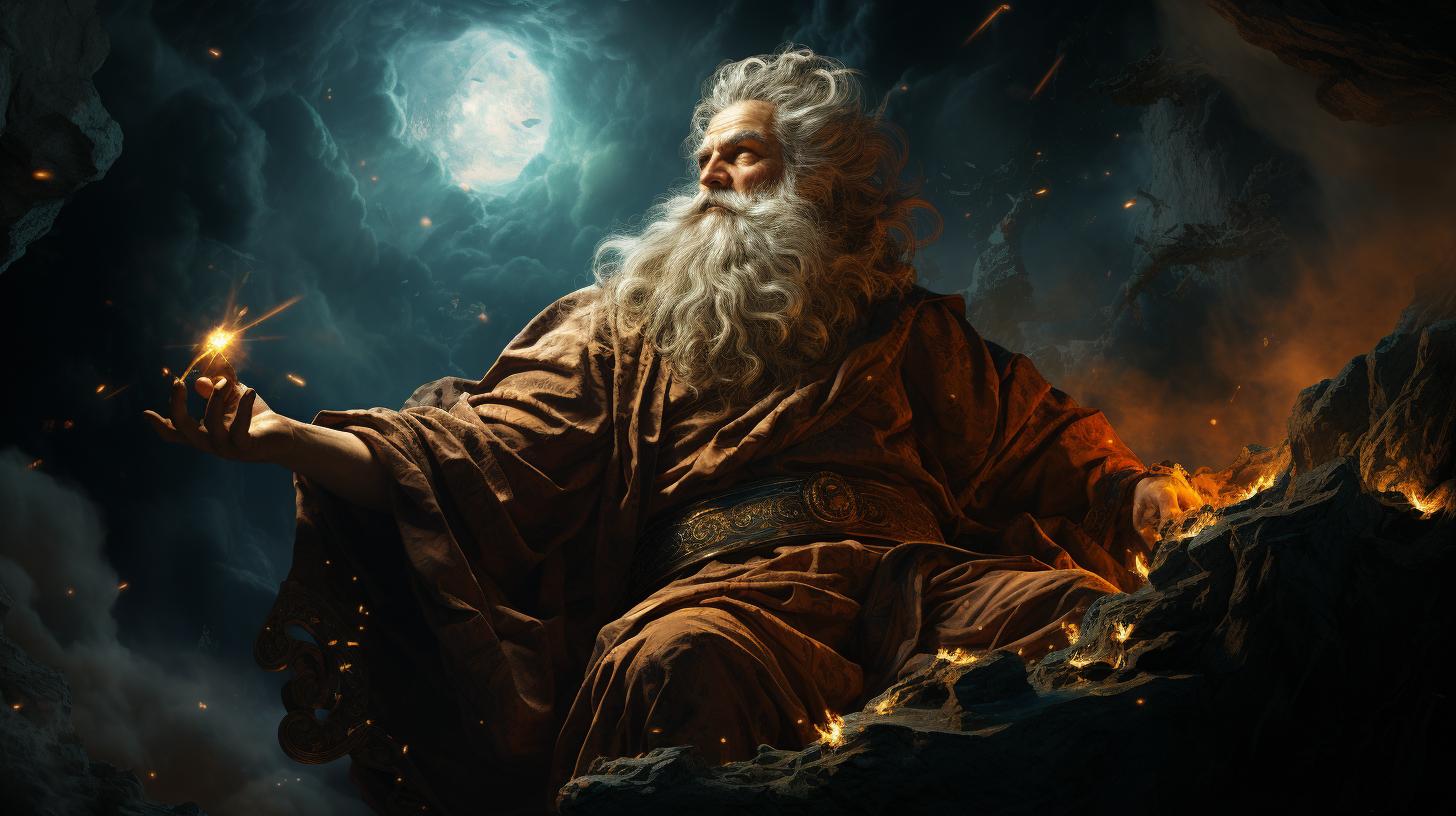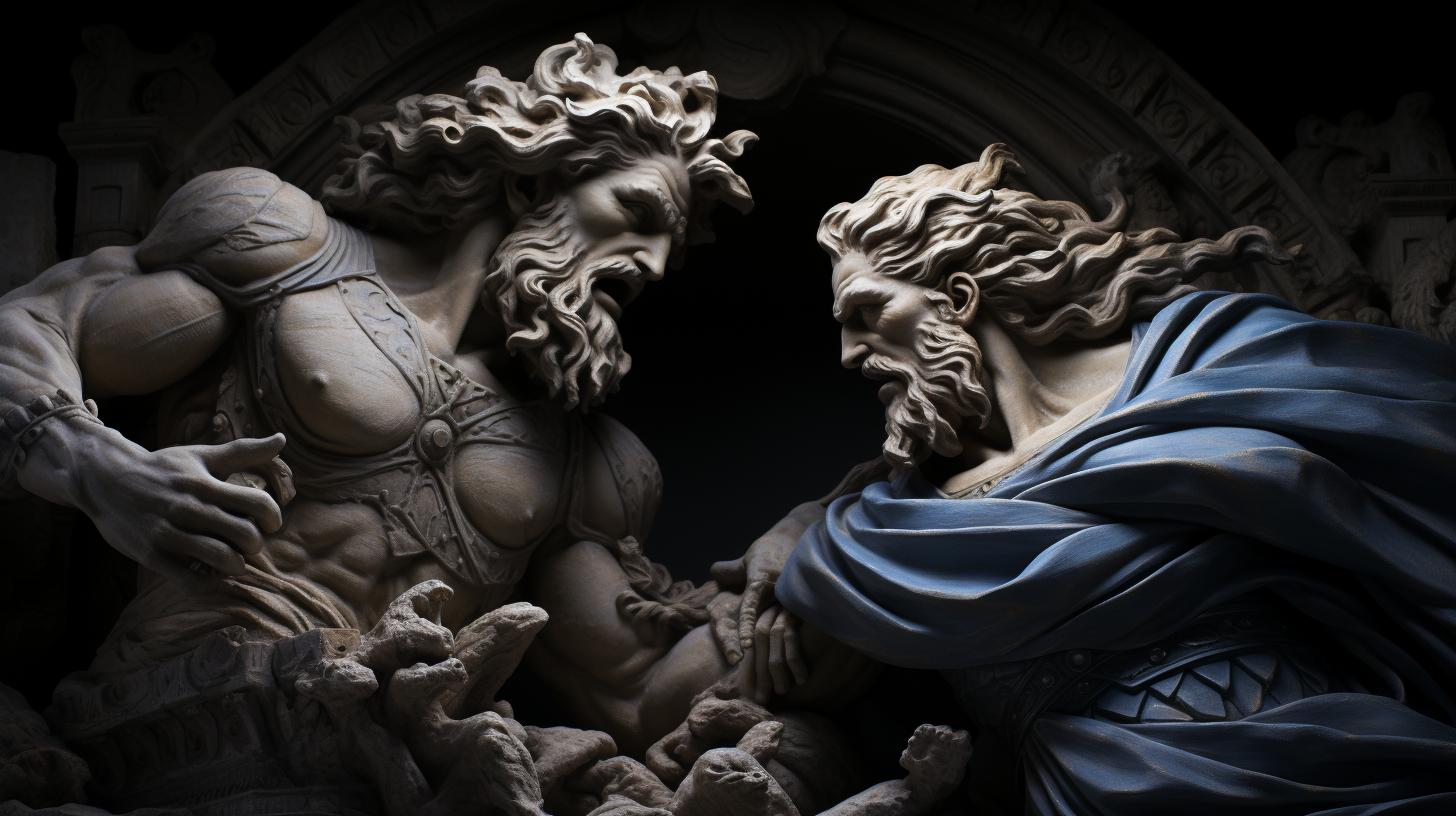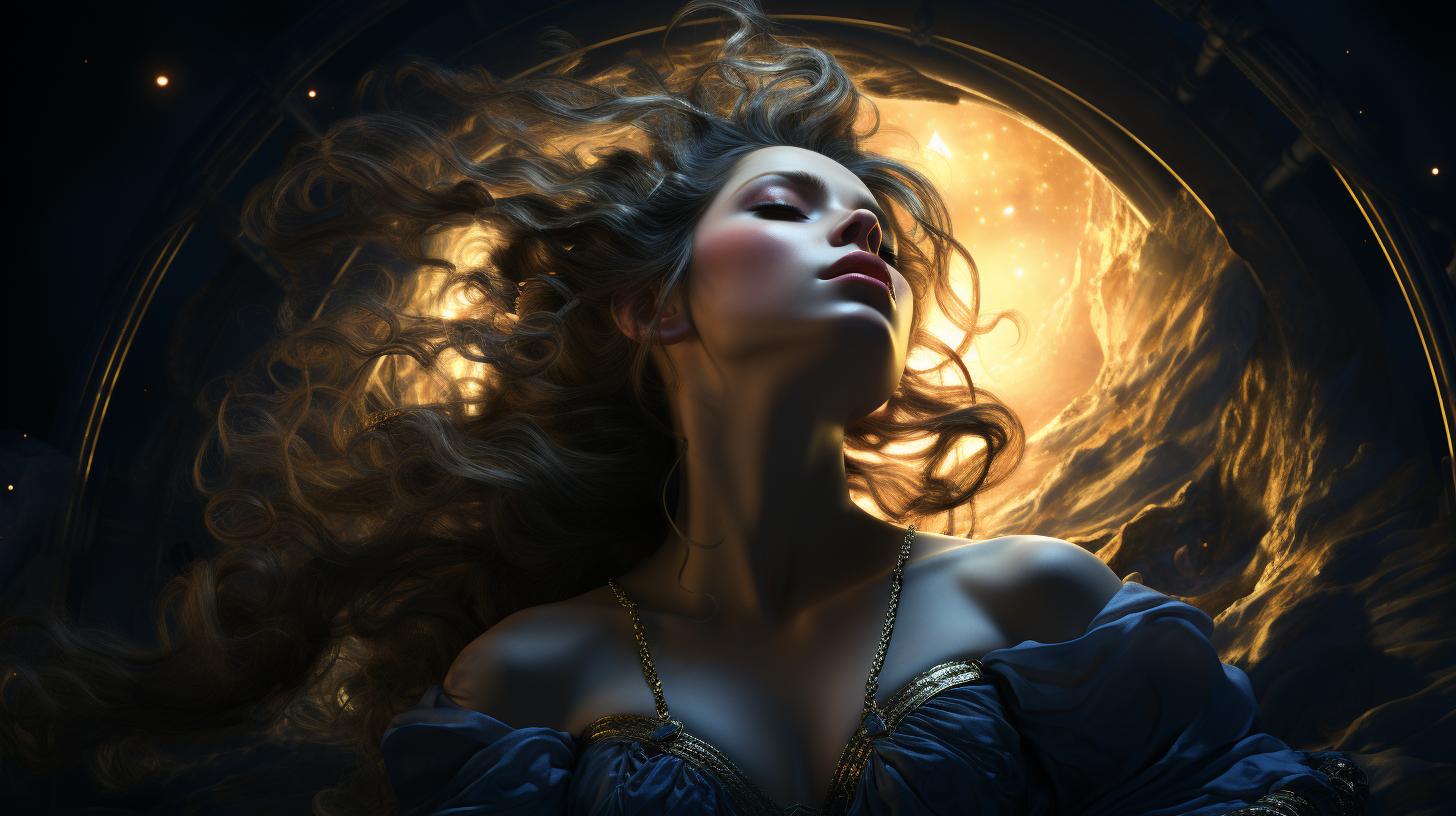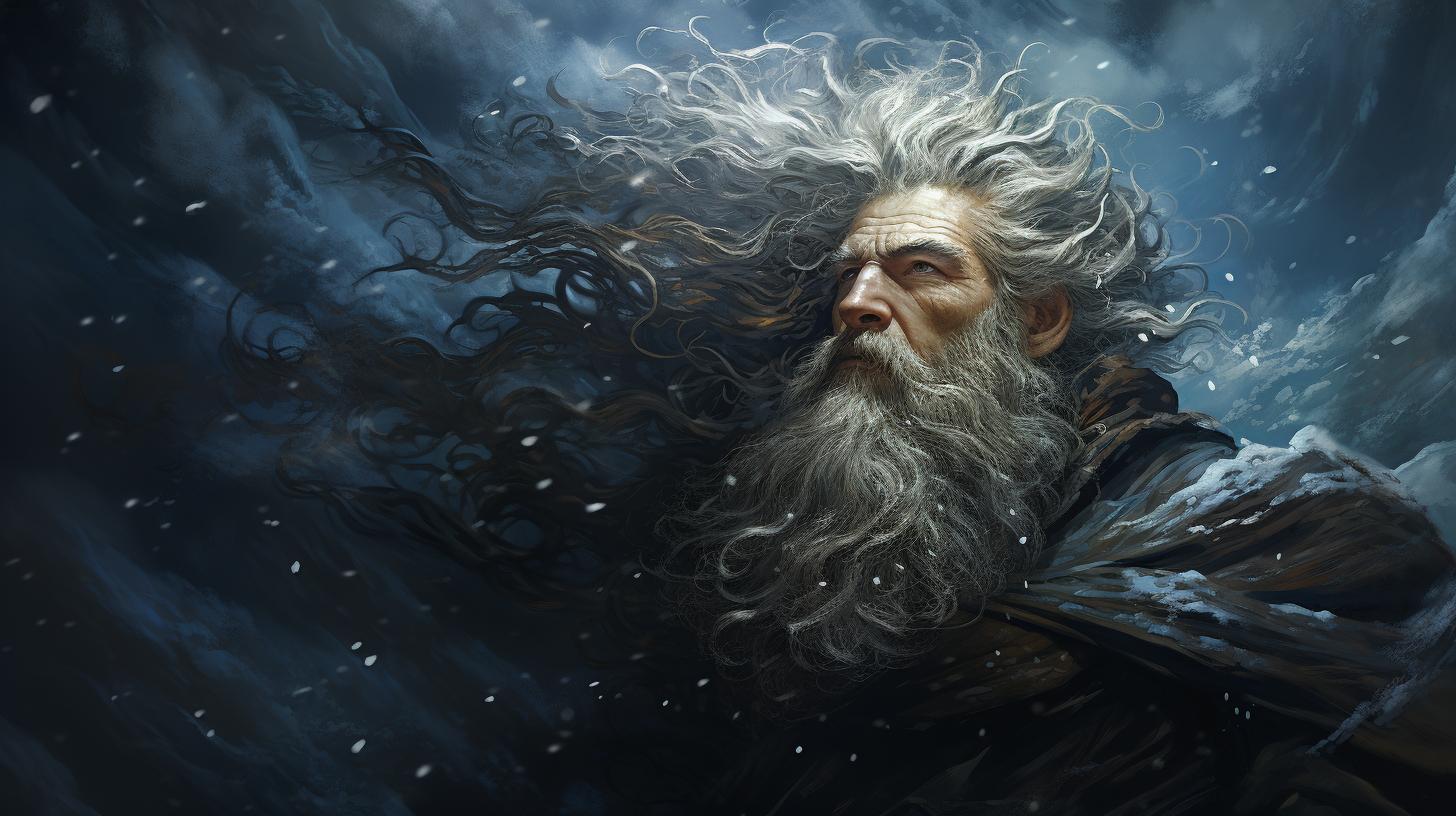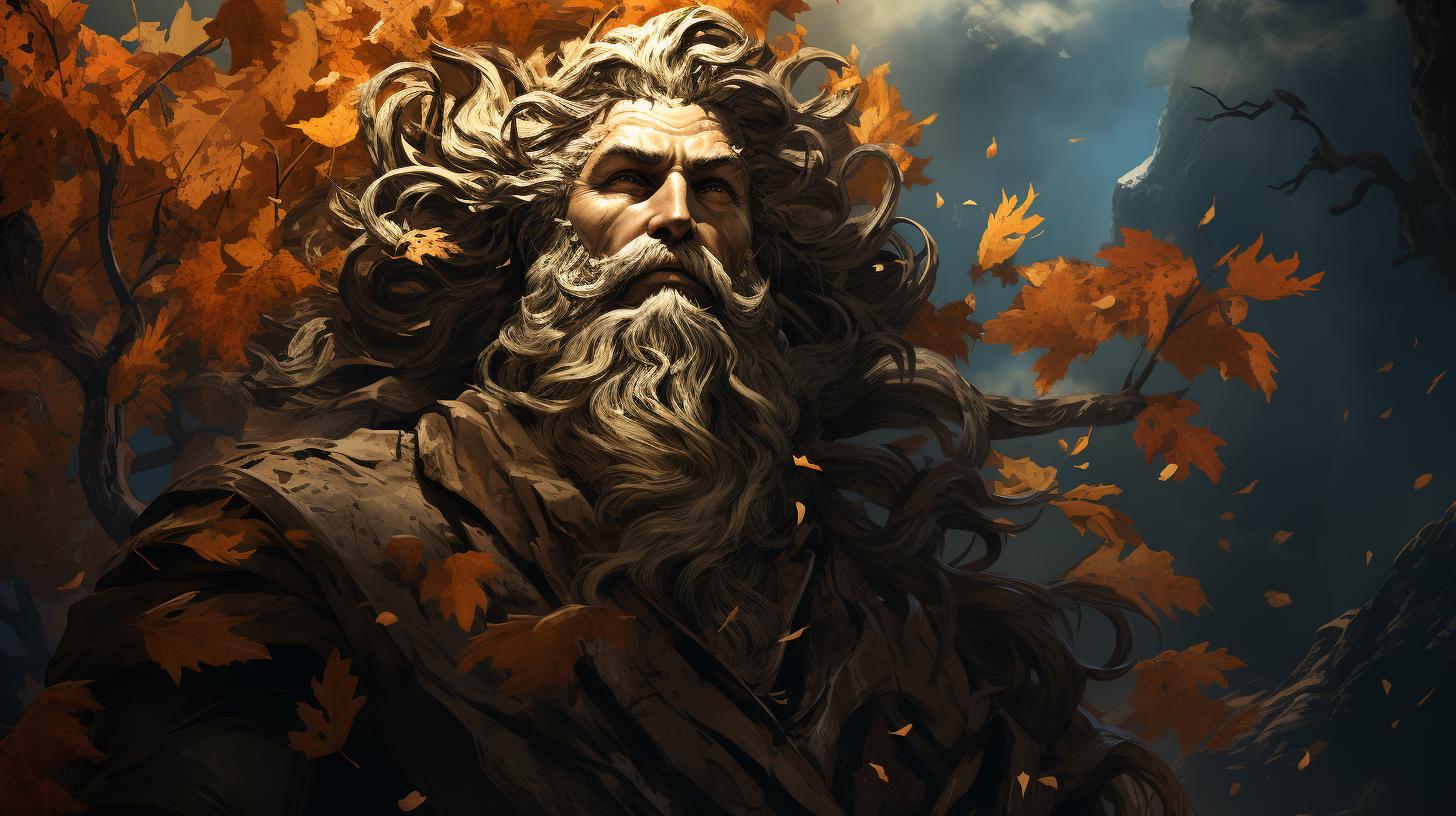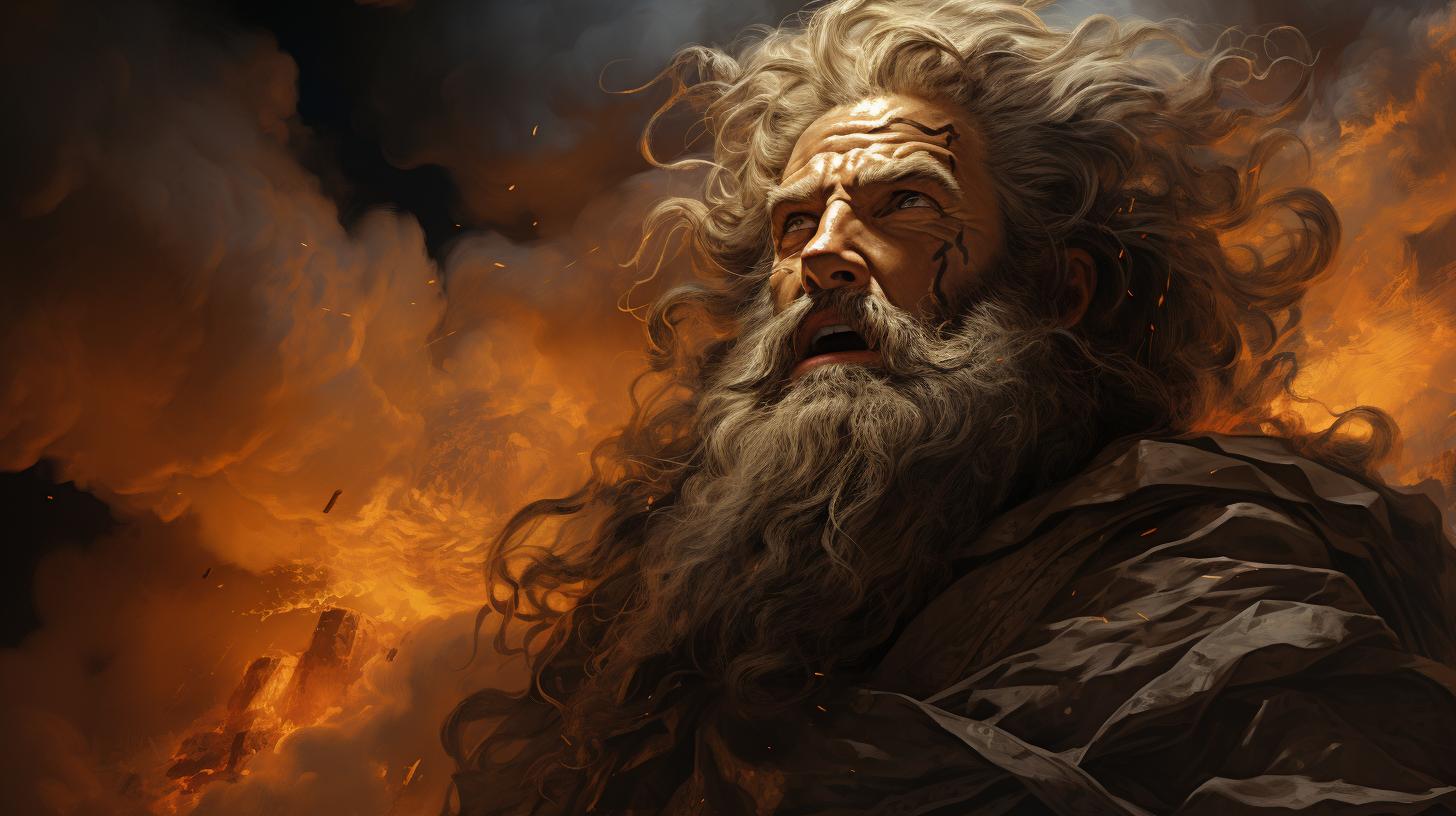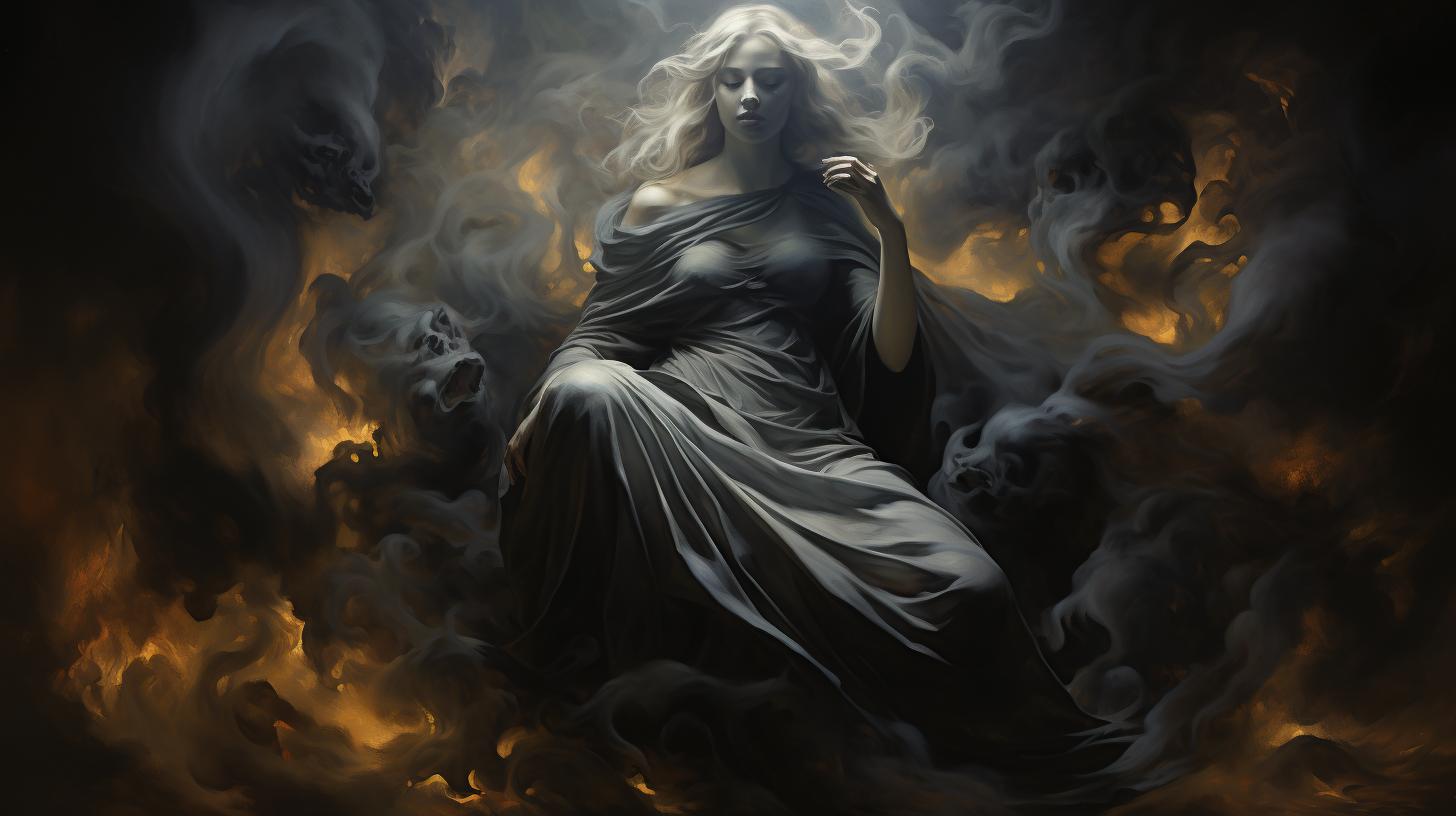What Greek God is Uranus: Unveiling the Mythological Identity of Uranus in Greek mythology
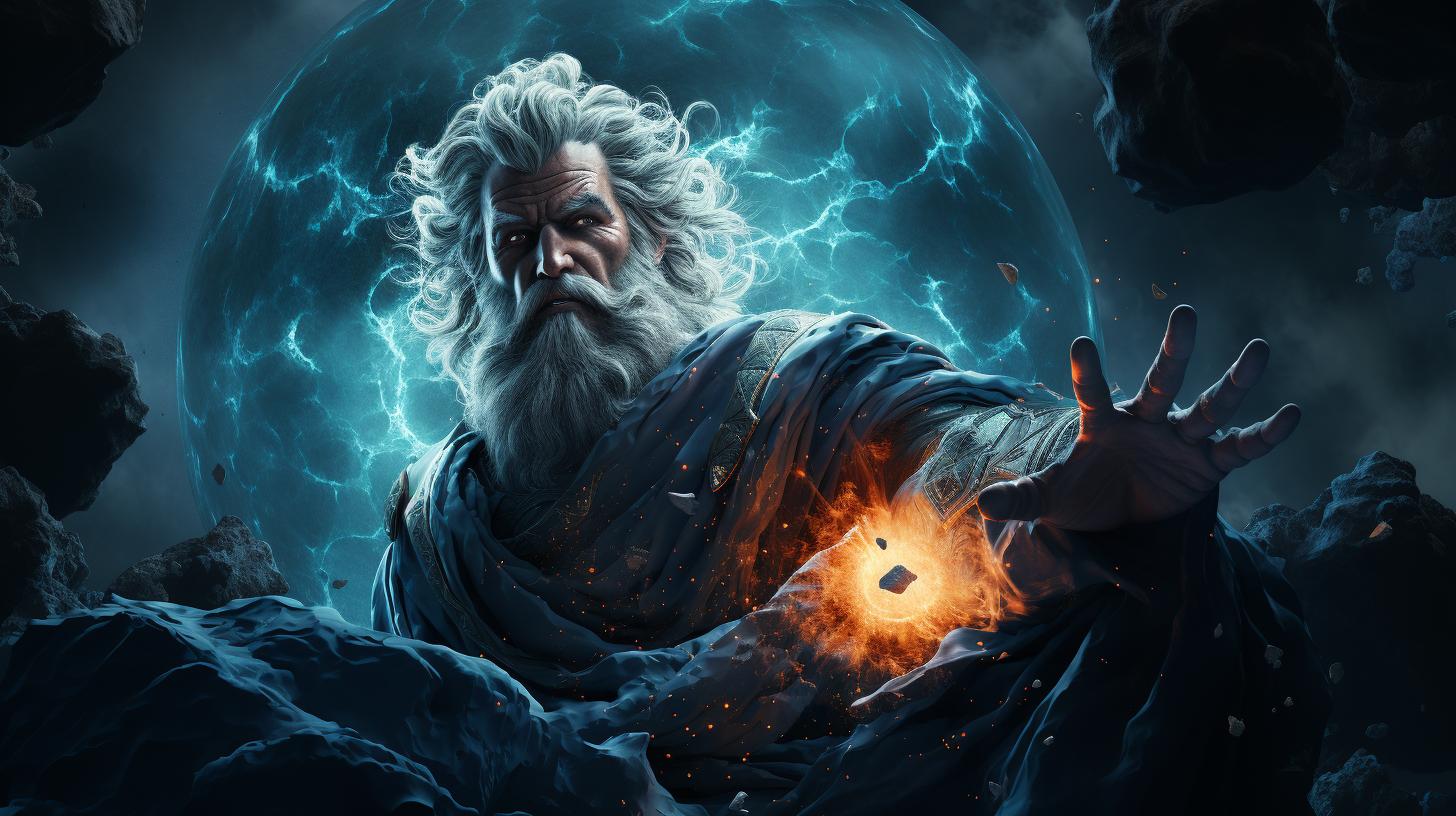
Greek mythology encompasses a rich tapestry of gods and goddesses, each with their own unique stories and significance. Within this pantheon lies the enigmatic figure of Uranus, the personification of the sky.
Born of Gaia and brother to Ourea and Pontus, Uranus played a pivotal role in the creation of the world as we know it. Through his tumultuous relationship with Gaia and the fateful act of castration by Cronus, Uranus shaped the cosmos and gave rise to powerful offspring such as the Titans and the goddess Aphrodite. Join us as we delve into the captivating mythological identity and role of Uranus in Greek lore.
The Significance of Greek Mythology
Greek mythology holds a remarkable place in human history, captivating generations with its rich tapestry of gods, goddesses, and epic tales. It serves as a window into the beliefs, culture, and values of ancient Greece, providing insights into the complexities of the human psyche and our relationship with the divine.
The Origins and History of Greek Mythology
Greek mythology originated in the archaic period of Greek history, dating back to around the 8th century BCE. It evolved from the oral traditions and folklore of the Greek people, later recorded by ancient poets like Hesiod and Homer.
These myths were not simply stories; they were a way to explain natural phenomena, human behavior, and the mysteries of the world.
Greek mythology reflects the historical and social contexts in which it emerged.
It drew influences from the ancient Minoan and Mycenaean civilizations, as well as neighboring cultures like the Egyptian and Mesopotamian civilizations. Over time, Greek mythology intertwined with religious practices, rituals, and even political institutions, shaping the fabric of Greek society.
Exploring the Gods and Goddesses
At the heart of Greek mythology are the gods and goddesses, beings who possessed superhuman powers and governed various aspects of the natural and human realms. These divine beings served as both guides and arbiters of human fate, influencing everything from love and war to agriculture and the arts.
Greek mythology is replete with a pantheon of majestic deities; Zeus, the mighty ruler of Olympus; Poseidon, the god of the sea; Athena, the goddess of wisdom; Aphrodite, the goddess of love and beauty, and many more.
Each god and goddess had their unique roles, personalities, and stories that intertwined with mortals and shaped the course of history.
The gods and goddesses were not distant and aloof; they mirrored human emotions, virtues, and flaws, making them relatable to the everyday person.
They embodied the complexities of human existence, offering both comfort and moral lessons through their triumphs and tribulations.
Greek mythology, with its vast pantheon, serves as a testament to human creativity, imagination, and the desire to understand the world around us.
It continues to fascinate and inspire people across the globe, leaving an indelible mark on art, literature, and popular culture to this day.
Unraveling the Mystery of Uranus
Unraveling the enigmatic nature of Uranus in Greek mythology provides fascinating insights into the intricate tapestry of ancient lore. This section delves into the mythological identity of Uranus, exploring his parentage, siblings, and the dramatic castration by his own son, Cronus.
The Mythological Identity of Uranus
Uranus, also known as Caelus in Roman mythology, holds a significant position among the primordial deities of Greek lore.
As the personification of the sky, Uranus encompasses the vast expanse above us, unrestrained by earthly limitations. His role and symbolism in shaping the cosmos and the gods that inhabit it are essential to understanding the dynamic nature of Greek mythology.
Parentage and Siblings of Uranus
Uranus, born to Gaia, the personification of the Earth, emerged as one of the powerful primeval gods. His siblings include Ourea, the mountains, and Pontus, the sea. Together, they form the fundamental elements that define the world’s existence and its divine inhabitants.
The Castration of Uranus by Cronus
The infamous castration of Uranus, orchestrated by his own son Cronus, represents a pivotal event in Greek mythology. Uranus’ hatred towards his own children led him to conceal them within Gaia. Seeking vengeance, Gaia beseeched her offspring for retribution, and only Cronus accepted the challenge.
Armed with a sickle, Cronus castrated Uranus, resulting in the separation of the sky from the Earth and forever altering the course of mythological history.
The Role and Symbolism of Uranus in Greek Mythology
Uranus, the personification of the sky, plays a crucial role in Greek mythology, representing the vast expanse above us.
In the realm of divine beings, Uranus holds significant symbolism and relationships that shape the mythological narrative. This section explores Uranus’ role as the sky personified, his connections with Gaia and other deities, and the profound significance of his offspring.
Uranus as the Personification of the Sky
As the personification of the sky, Uranus embodies the vast celestial dome that envelops the Earth. He represents the overarching force that controls the heavens, the domain from which the gods and goddesses govern their realms.
Uranus’ presence in Greek mythology serves as a reminder of the cosmic order and the influence of the celestial sphere on mortal and immortal endeavors alike.
Uranus’ Relationship with Gaia and Other Deities
Uranus shares a deep connection with Gaia, the personification of the Earth.
Together, they form a symbiotic relationship, representing the union of the sky and the earth. This primordial pairing sets the stage for the creation and existence of all subsequent life forms.
Uranus’ relationship with other deities extends beyond just Gaia. He forms partnerships with various goddesses, such as Hestia, Nyx, Hemera, and Clymene, each contributing to the intricate web of divine associations that shape the mythological landscape.
Uranus’ Offspring and Their Significance
The offspring of Uranus and Gaia hold immense significance in Greek mythology. Twelve Titans, the first-generation divine beings, emerge from their union, establishing a powerful dynasty. Additionally, the three powerful Cyclopes and three monstrous Hecatoncheires, born to Uranus and Gaia, become instrumental in shaping the cosmos.
These offspring embody the elemental forces and iconic figures found throughout Greek mythology, playing pivotal roles in its unfolding narrative.
The role and symbolism of Uranus in Greek mythology reveal the interconnectedness of celestial and earthly forces and shed light on the origins and development of the divine pantheon.
The sky, personified by Uranus, offers both a backdrop and a catalyst for the captivating stories that define Greek mythology as we know it today.
The Influence of Uranus in Greek Cosmogony
Uranus, the personification of the sky, played a significant role in shaping the Greek cosmogony and mythology.
The stories surrounding Uranus reveal various aspects of his influence on the creation and development of the world as the ancient Greeks perceived it.
The Separation of the Sky and Earth
A pivotal event in Greek cosmogony is the separation of the sky and earth, which was brought about by the castration of Uranus.
As the story goes, Uranus’ own son, Cronus, used a sharp sickle to castrate him, leading to the physical detachment of the heavenly realm from the earthly domain.
The Birth of Aphrodite from Uranus’ Genitals
An astonishing consequence of Uranus’ castration was the birth of the goddess Aphrodite. As Uranus’ severed genitals were thrown into the sea, they generated foam from which Aphrodite emerged, fully grown and beautiful.
This event highlights Uranus’ role in the creation of one of the most revered and influential deities in Greek mythology.
The Creation of Giants, Furies, and Nymphs
Uranus’ influence extended beyond the birth of gods and goddesses. From the blood that flowed upon his castration, other mythical beings came into existence. The Giants, known for their immense strength, the Furies, embodiments of vengeance, and the Nymphs, associated with natural settings, all emerged from the spilled blood of Uranus.
In summary, the influence of Uranus in Greek cosmogony is profound. His separation from the earth, the birth of Aphrodite from his severed genitals, and the creation of powerful beings from his blood demonstrate his integral role in shaping the Greek mythological universe.
Comparing Uranus in Greek and Roman Mythology
In the realm of Greek and Roman mythology, Uranus plays a significant role, albeit with some variations and interpretations. This section delves into the intriguing comparisons between Uranus and his Roman equivalent, Caelus, along with exploring the genealogical variances and the role of Uranus in Roman cosmogony.
Uranus’ Roman Equivalent: Caelus
In Roman mythology, Uranus finds his parallel in the god Caelus. Caelus is known as the personification of the sky and holds a similar position as Uranus in Greek mythology.
He is the offspring of Aether and Dies and father to the god Mercury. This connection between Uranus and Caelus demonstrates the cross-cultural influence and assimilation of gods in ancient mythology.
Genealogical Variances and Interpretations
While Uranus and Caelus share many similarities, there are variations in their genealogies across different sources. These variances in lineage and interpretations highlight the fluidity and evolution of mythology over time.
It is essential to explore diverse ancient texts to gain a comprehensive understanding of the complex relationships between deities.
The Role of Uranus in Roman Cosmogony
In Roman cosmogony, Uranus, or Caelus, plays a crucial role in the creation of the world. Similar to his Greek counterpart, he is responsible for the separation of the sky and earth, an event of immense significance in the birth of the cosmos.
Understanding Uranus’ role in Roman cosmogony provides insights into the ancient Roman perception of the universe and the divine forces that govern it.
This comparison between Uranus and Caelus showcases the interconnectedness of Greek and Roman mythologies, where gods and their stories transcend cultural boundaries.
Exploring these nuances adds depth to our understanding of the intricate tapestry of ancient mythology and its pervasive influence in human culture and thought.
Interpretations and Revelations through Ancient Texts
Interpreting the mythological tales of Uranus requires delving into ancient texts and piecing together the fragmented accounts of his story. These texts offer valuable insights into the significance and evolution of Uranus in Greek mythology, shedding light on his role in shaping the cosmic order.
Hesiod’s Theogony: Insights into Uranus’ Story
One of the primary sources for understanding Uranus’ mythological narrative is Hesiod’s Theogony. This ancient Greek poem provides crucial insights into Uranus’ lineage, relationships, and ultimate fate. Hesiod recounts the tumultuous relationship between Uranus and Gaia, highlighting Uranus’ mistreatment of his offspring and his subsequent castration by Cronus.
Through Hesiod’s Theogony, we learn about the immense power and dominance Uranus held as the personification of the sky.
His castration not only marked a pivotal moment in the Greek cosmogony but also symbolized the separation of the heavens and the earth, shaping the world as we know it.
The Influence of Uranus in Other Ancient Greek Texts
Beyond Hesiod’s Theogony, various other ancient Greek texts also provide fascinating glimpses into Uranus’ role in the mythological landscape.
Works by poets such as Homer, Pindar, and Apollonius of Rhodes contain scattered references to Uranus, often invoking his name in the context of exploring the fundamental elements of the universe.
These texts offer differing interpretations and perspectives on Uranus, with some emphasizing his status as a primordial deity and others highlighting his genealogical connections to other gods and goddesses. By examining these diverse accounts, scholars have been able to piece together a more comprehensive understanding of Uranus’ significance in Greek mythology.
Understanding Uranus’ Evolution over Time
As with many mythological figures, the portrayal and significance of Uranus evolved over time. Different regions and periods in ancient Greece may have altered the nuances of his story, elaborating on certain aspects or emphasizing specific interactions with other deities.
Studying the evolution of Uranus’ mythological character allows us to grasp how ancient Greek society shaped and reshaped its understanding of this celestial figure. From his role as a primary deity in the cosmogony to his connections with other gods and the subsequent influence on later civilizations, Uranus’ story stands as a testament to the dynamic nature of Greek mythology.
In conclusion, interpreting Uranus’ story requires a deep dive into ancient texts like Hesiod’s Theogony alongside other Greek literary works. By piecing together these fragmented accounts, we gain valuable insights into Uranus’ significance, role, and evolution within Greek mythology.
Common Questions and Misconceptions about Uranus
Uranus, the enigmatic Greek god of the sky, has sparked numerous questions and misconceptions. Let’s explore some of the most common inquiries surrounding Uranus and debunk any misunderstandings along the way.
Does Uranus Have a Cult or Worship Practice?
Unlike many other prominent deities in Greek mythology, Uranus does not have a dedicated cult or established worship practices associated with him. While he played a vital role in the cosmogony of the universe, there is no evidence of ancient Greeks actively venerating Uranus through rituals or organized religious ceremonies.
The Importance of Uranus in Greek Rituals and Beliefs
Although Uranus lacked a cult, his significance in Greek rituals and beliefs cannot be ignored. As the personification of the sky, Uranus represented a fundamental aspect of the natural world. The ancient Greeks invoked and recognized the celestial element of Uranus during their religious observances, paying homage to the heavenly realm through prayers and offerings.
Misconception: Uranus’ Worship Linked to Astronomy
It is crucial to clarify a common misconception that often arises regarding the worship of Uranus being closely tied to astronomy. While Uranus’ name was later adopted to designate a planet in the solar system, the connection between his mythology and the scientific discovery of the celestial body occurred centuries after the ancient Greeks’ beliefs and rituals had developed.
Clarifying Misunderstandings and Unsupported Claims
As with any mythological figure, misconceptions and unsupported claims can arise. It is essential to separate fact from fiction when discussing Uranus. One common misunderstanding is the belief that Uranus was universally worshipped throughout ancient Greece, which we have already clarified as not being the case.
Additionally, it is important to approach ancient texts and scholarly interpretations with caution, as there may be discrepancies and variations in narratives surrounding Uranus.
To gain a comprehensive understanding of Uranus in Greek mythology, it is crucial to critically analyze various sources and consult reputable studies that delve into the complexities of this enigmatic god.
Exploring Uranus’ Legacy and Modern Significance
As we delve into the legacy and modern significance of Uranus, we uncover various aspects of its impact on astrology, astronomical naming, cultural references, and its influence in art, literature, and pop culture.
Let us delve into these captivating areas that showcase the enduring influence of Uranus even in our contemporary world.
Uranus’ Impact on Astrology and Astronomical Naming
Uranus has left an indelible mark on astrology, particularly as one of the ruling planets. Ancient astrologers associated Uranus with innovation, rebellion, and unconventional thinking. Its unique influence is reflected in the astrological signs it governs, bringing about a spirit of progressiveness and groundbreaking ideas.
Astronomically, Uranus holds its significance in the realm of celestial bodies. Named after the Greek god, its discovery in 1781 by astronomer William Herschel introduced a new era in astronomical studies.
This marked the first time a planet was identified beyond those known in classical antiquity, expanding our understanding of the vastness of the universe.
Cultural References and Representations of Uranus
Uranus’ impact can also be found in various cultural references and representations across different forms of media.
In literature, Uranus has been portrayed as a symbol of cosmic power and grandeur, often associated with creation and the divine. Its symbolism permeates through literary works, influencing themes of cosmic destiny, celestial beauty, and the eternal struggle between gods and mortals.
In visual arts, Uranus is frequently depicted as a regal figure adorning the night sky, radiating his celestial presence. Paintings, sculptures, and other artistic creations often capture the majestic aura of Uranus, evoking a sense of awe and wonder in viewers.
Moreover, Uranus has had an impact on pop culture, with references present in music, movies, and even fashion. Artists and filmmakers draw inspiration from the mythological associations with Uranus to create narratives imbued with depth and intrigue.
In the world of fashion, Uranus’ name has been incorporated into trends, designs, and collections, symbolizing avant-garde and boundary-pushing aesthetics.
Exploring Uranus’ Influence in Art, Literature, and Pop Culture
The influence of Uranus extends beyond mere symbolism. Its mythical presence has inspired artists, writers, and creators to explore themes such as freedom, individuality, and the pursuit of knowledge. This influence can be seen in a multitude of art forms, from classical sculptures to contemporary novels.
In literature, Uranus’ stories and themes are often reimagined and reinterpreted, capturing the imagination of readers across generations. Writers continue to draw inspiration from the epic tales surrounding Uranus, presenting new perspectives that resonate with modern audiences.
Furthermore, Uranus’ impact on pop culture remains prominent. From science fiction novels and films to comic books and video games, Uranus’ name and its associated symbolism are frequently invoked to evoke a sense of awe and mystery.
Its influence permeates through various genres, contributing to the rich tapestry of popular media.
- The influence of Uranus in astrology and astronomical naming
- Cultural references and representations of Uranus in various art forms
- Exploring Uranus’ influence in literature, pop culture, and the arts
.

